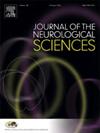zilucoplan对既往未接受过免疫球蛋白或血浆交换的广泛性重症肌无力患者的疗效:来自3期RAISE研究的亚组分析
IF 3.6
3区 医学
Q1 CLINICAL NEUROLOGY
引用次数: 0
摘要
BackgroundRAISE (NCT04115293;N = 174)是一项随机、双盲、安慰剂对照、zilucoplan(一种大环肽补体成分5抑制剂)在抗乙酰胆碱受体抗体阳性(AChR Ab+)全身性重症肌无力(gMG)患者中的3期研究。Zilucoplan在总体人群中与安慰剂相比,对重症肌无力(MG)特异性结局有临床意义的改善。我们评估了未使用免疫球蛋白(静脉注射和皮下注射)或血浆置换(PLEX)的RAISE患者的情况。方法将抗achr Ab+ gMG成人患者按1:1随机分为每日、自我给药、zilucoplan 0.3 mg/kg皮下注射或安慰剂,持续12周。主要疗效终点是从基线(CFB)到第12周重症肌无力日常生活活动(MG-ADL)评分的变化。我们进行了预先指定的,描述性的分析亚组没有和有先前的免疫球蛋白/PLEX。结果基线时,54例患者既往无免疫球蛋白/PLEX (zilucoplan: n = 29;安慰剂:n = 25);与先前有免疫球蛋白/PLEX的亚组相比,该亚组的疾病较轻,病程较短。在先前没有免疫球蛋白/PLEX的亚组中,zilucoplan组MG-ADL评分的平均(标准误差)CFB为- 4.22(0.71),而安慰剂组为- 2.61(0.50),在先前有免疫球蛋白/PLEX的亚组中为- 4.93(0.54)和- 2.94(0.50)。Zilucoplan在两个亚组中耐受性良好,安全性相似。结论:在RAISE研究中,没有先前免疫球蛋白/PLEX的患者,病情较轻,zilucoplan在mg特异性结局方面的改善与先前免疫球蛋白/PLEX患者相当。这些发现可能支持在gMG治疗范例中早期使用zilucoplan。本文章由计算机程序翻译,如有差异,请以英文原文为准。
Efficacy of zilucoplan in patients with generalised myasthenia gravis who have not previously received immunoglobulin or plasma exchange: A subgroup analysis from the Phase 3 RAISE study
Background
RAISE (NCT04115293; N = 174) was a randomised, double-blind, placebo-controlled, Phase 3 study of zilucoplan, a macrocyclic peptide complement component 5 inhibitor, in patients with anti-acetylcholine receptor antibody-positive (AChR Ab+) generalised myasthenia gravis (gMG). Zilucoplan showed clinically meaningful improvements in myasthenia gravis (MG)-specific outcomes versus placebo in the overall population. We assessed the profiles of RAISE patients without and with prior immunoglobulin (intravenous and subcutaneous) or plasma exchange (PLEX) use.
Methods
Adults with anti-AChR Ab+ gMG were randomised 1:1 to daily, self-administered, subcutaneous zilucoplan 0.3 mg/kg or placebo for 12 weeks. The primary efficacy endpoint was change from baseline (CFB) to Week 12 in Myasthenia Gravis Activities of Daily Living (MG-ADL) score. We conducted a prespecified, descriptive analysis of subgroups without and with prior immunoglobulin/PLEX.
Results
At baseline, 54 patients had no prior immunoglobulin/PLEX (zilucoplan: n = 29; placebo: n = 25); this subgroup had experienced milder disease and shorter disease duration from diagnosis than the subgroup with prior immunoglobulin/PLEX. Mean (standard error) CFB in MG-ADL score was −4.22 (0.71) with zilucoplan versus −2.61 (0.50) with placebo in the subgroup without prior immunoglobulin/PLEX, and − 4.93 (0.54) versus −2.94 (0.50) in the subgroup with prior immunoglobulin/PLEX. Zilucoplan was well tolerated with a similar safety profile in both subgroups.
Conclusions
In the RAISE study, patients without prior immunoglobulin/PLEX, who had milder disease, experienced improvements in MG-specific outcomes with zilucoplan that were comparable to those seen in patients with prior immunoglobulin/PLEX. These findings may support early use of zilucoplan in the gMG treatment paradigm.
求助全文
通过发布文献求助,成功后即可免费获取论文全文。
去求助
来源期刊

Journal of the Neurological Sciences
医学-临床神经学
CiteScore
7.60
自引率
2.30%
发文量
313
审稿时长
22 days
期刊介绍:
The Journal of the Neurological Sciences provides a medium for the prompt publication of original articles in neurology and neuroscience from around the world. JNS places special emphasis on articles that: 1) provide guidance to clinicians around the world (Best Practices, Global Neurology); 2) report cutting-edge science related to neurology (Basic and Translational Sciences); 3) educate readers about relevant and practical clinical outcomes in neurology (Outcomes Research); and 4) summarize or editorialize the current state of the literature (Reviews, Commentaries, and Editorials).
JNS accepts most types of manuscripts for consideration including original research papers, short communications, reviews, book reviews, letters to the Editor, opinions and editorials. Topics considered will be from neurology-related fields that are of interest to practicing physicians around the world. Examples include neuromuscular diseases, demyelination, atrophies, dementia, neoplasms, infections, epilepsies, disturbances of consciousness, stroke and cerebral circulation, growth and development, plasticity and intermediary metabolism.
 求助内容:
求助内容: 应助结果提醒方式:
应助结果提醒方式:


